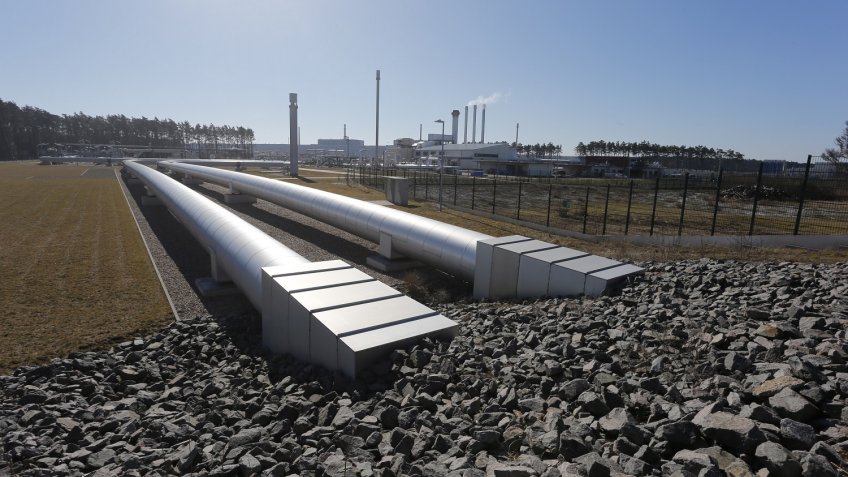
New anti-trust legislation policies and sanctions have led to the situation when supply volumes of Russian pipeline gas have almost reached their limits. The market is growing, but in these circumstances the larger part of the Russian share may be snatched by the US soon. What can be done to avoid it? Or perhaps fighting for the slice of the cake is no longer relevant? After all, many Western politicians and business people keep saying that the fossil-fuel era is over soon, while a switch to renewable energy is only a matter of time. In his interview to ‘Forpost’, Vladimir Litvinenko, Rector of Saint-Petersburg Mining University and a leading industry expert, stated his opinion on this issue. Vladimir Litvinenko is an author of numerous scientific articles, with an example being the article exploring resource potential of the Ural-African transcontinental oil and gas belt.
- Prof Litvinenko, as we see, the energy demand is falling but supply is growing. Could the coronavirus pandemics become a real opportunity to speed up the energy transition and make a step further towards carbon-neutral energy sector?
- Most technologies based on renewable energy sources, if we talk about the next ten to twenty years, will remain uncompetitive due to insufficient efficiency of energy conversion and storage processes. A large-scale introduction of hydrogen energy, in turn, is impossible without solving first the problem of its safe transportation and storage; the production efficiency has to be improved as well.
At the same time, the raw materials potential can ensure sustainable development of the global economy. However, to make it possible, it is essential to enhance the investment environment and develop a system that would govern the sector on a worldwide scale. Particular attention should be paid to creating favourable conditions for the development of hard-to-recover reserves — whether in mining and geological or natural and climatic terms.
In the global energy sector, natural gas — and certainly LNG — will play a particularly important role in the coming decades. LNG production is an independent segment of the gas industry due to more flexible supply chains compared to pipeline gas deliveries.
Russia has an enormous resource potential in terms of LNG industry development, with annual production volumes potentially reaching from 140 to 160 million tons in the next ten years. This amount comprises almost 20% of the global supplies. Moreover, LNG shipments will be growing both on the Asian and European markets.
- What is the reason Gazprom cannot increase supplies to Europe?
- Once the Nord Stream 2 project has been completed, Gazprom will no longer be able to increase supply volumes to the EU market. There is a simple explanation - the monopoly. The European Union, referring to the anti-trust laws, will stop the company from extending sales of natural gas transported via pipelines. Thereby we will hit a wall.
- In other words, Novatek, with LNG it offers, is the only player who can compete with American and Qatari LNG producers for a growing share of the European market?
- Not necessarily. If pipelines deliver gas supplied by several companies, not Gazprom alone, our country’s share of the EU market may as well increase. But this will only happen if the gas that we ship belongs to different entities - these could be, theoretically speaking, Rosneft, Novatek, Lukoil, some foreign investors. As long as it is more than one company, the shipments we make will not be affected by anti-trust legislation of the EU, since the condition obliging to prohibit monopolisation of access to the export pipeline is complied with. It should also be noted that the EU considers gas to be an environmentally-friendly fuel; its everyday use both by industries and at homes is highly welcome. As of now, gas shortage in Europe is estimated at 50-80 billion cubic metres. It is a niche American corporations are aiming at, and for Russia, it would be a strategic mistake to miss out on this market opportunity.
At the current stage, monopolisation of the LNG industry does not yet have the same negative impact on the volumes of liquefied gas exports. If the sector remains nonetheless under state regulation, other prospective markets may soon be closed to shipments of Russian LNG, in the same way as the EU market does not allow extra deliveries from Gazprom.
As for discussions in the media regarding competition between Russian piped gas and Russian LNG, it has been started by some incompetent journalists. These are two different market niches. Besides, Europeans themselves do not care what gas they consume; a matter of prices is the only important factor here.
- How real is it that other companies, in addition to Gazprom, will contribute to export deliveries of gas transported by pipeline?
- The crucial factor is how much time the regulator, whose role performs the State in this case, requires to make a decision. If decision-making time is reduced, it will help to improve performance of industry companies, get additional opportunities for replenishing the country's budget, facilitating the development of the primary industries and socio-economic infrastructure in the regions.
Introduction of market-based regulatory mechanisms is an undeniably big decision. But in the beginning, such tools as, for instance, 'golden share' - particularly relevant in case of foreign investments - could serve as a support mechanism. This way, the State will have the right to either approve or veto whichever decisions the company's shareholders make.
| Maarten Wetselaar, Integrated Gas & New Energies Director at Royal Dutch Shell: |



